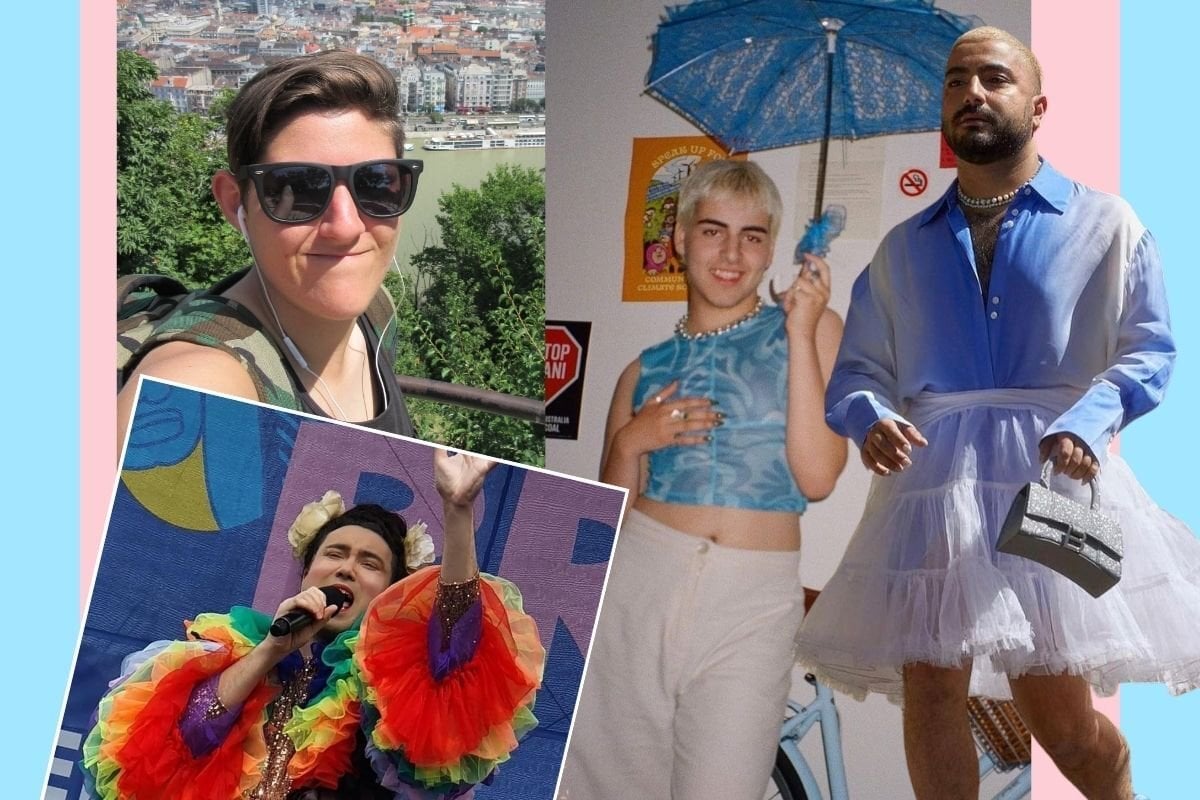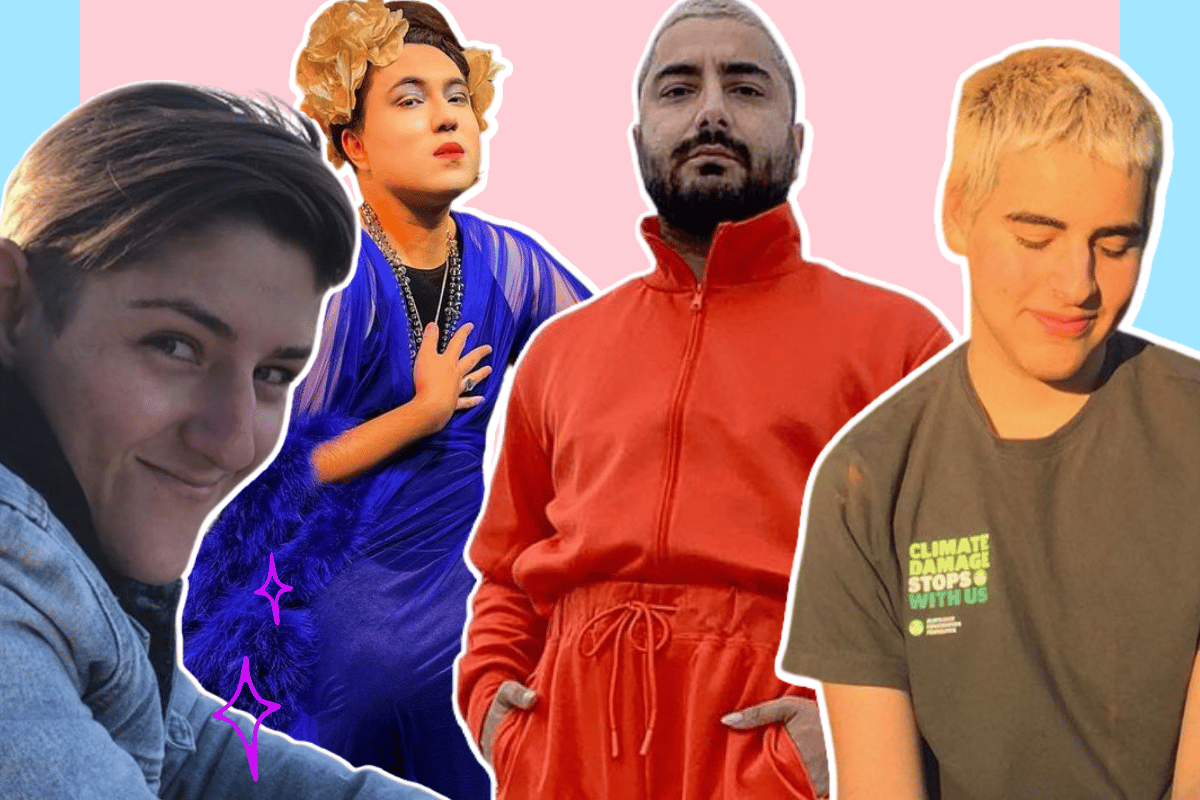
On International Day of Transgender Visibility on March 31, Mamamia launched a three-part series looking into the reality of the trans experience in Australia. Part one looked at what it's like to come out as trans. Part two looks at what it's like to live as trans. And today, the final part looks at what trans people would like to see change.
Through conversation with our four transgender interviewees - Melbourne jazz singer, cabaret performer and CEO of Transgender Victoria, Mama Alto; Geelong-based fashion stylist and co-host of Mamamia podcast, What are You Wearing?, Deni Todorovič; Construction worker from NSW's Central Coast, Jess Peroy, and Year 11 student, Theo Boltman - this is their list of collective top priorities for progress.
To make Australia safer, fairer and more inclusive for the transgender community.
Greater respect, equity and inclusion.
- Importance placed on respecting pronouns (and the negative impacts of misgendering) in all spaces - particularly in schools, institutions and the workplace.
- Ensure correct language options are offered on all governmental forms (offering the full spectrum of gender identities).
- Gender neutral bathrooms, or a safe space for trans people to use the bathroom.
- Elevate the conversation: The tone of the conversation about trans people in politics and the media is one of demonisation and dehumanisation. This needs to shift to acknowledgement and respect.
- Better representation: Measures to actively encourage trans people into all areas and industries, particularly public life (media, politics, etc.) to show positive role models for younger trans people, and also normalise trans people and their stories in the mainstream.
- Abolishment of the Religious Discrimination Bill.
Better access to quality healthcare.
- Greater access to medical treatments (expensive, top surgery not covered by Medicare).
- Greater investment to ensure more doctors are better educated and trained on trans issues and are trans aware (to avoid trans people going without quality medical care, and being stuck on waiting lists for months on end).
- A more streamlined process towards gender-affirming surgery.
- Improved mental health outcomes, particularly for trans youth: The suicide rate is 15 times higher for trans youth aged 14-25; and 80 per cent of transgender and gender diverse people aged 14-25 reported having self-harmed in their lifetime.
- Address health issues for trans people who are Indigenous and/or live in regional, rural and remote Australia, and therefore face greater barriers to accessing quality healthcare.
Improved education in schools, institutions and workplaces.
- Better education on diverse gender and sexual identities in schools.
- Ensuring queerness and gender identity are a part of the sex education syllabus at schools: This encourages correct and respectful language, fostering respect and inclusion for those grappling with their gender and sexual identity - particularly important given strong accounts of school bullying faced by LGBTQI+ students, and the impact on their mental health.
- Improved workplace education: For managers - in being equipped with the knowledge to effectively handle situations where an employee who identifies as transgender might encounter discrimination in the workplace; ensuring all staff understand what constitutes discrimination, that it is unacceptable that there are mechanisms are in place to report gender discrimination.
A message from Transgender Victoria, Parents of Gender Diverse Children, Transcend Australia & Zoe Belle Gender Collective:
— Transgender Victoria | TGV (@transgendervic) March 3, 2022
Trans, gender diverse and non-binary people: You are loved. You are valid. You matter. pic.twitter.com/9u1YJLShTn

